According to the news the satellite went into orbit. Whether it remains there for long is another story.
North Korea rocket launch: satellite successfully sent into orbit
The international community has strongly criticised North Korea after Pyongyang launched a long-range rocket test that it claimed had succeeded in sending a satellite into orbit.
You need to have the Adobe Flash Player to view this content.
Please click here to continue.
By Tom Phillips, Shanghai and agencies
11:11AM GMT 12 Dec 2012
Defying international critics and wrong-footing many who had anticipated a later launch date, North Korea launched the "three stage" rocket at 9.49am local time, according to the Japanese government.
South Korean and Japanese leaders convened emergency meetings following the launch of the rocket, which reportedly blasted off from a launch base in western North Korea and flew over the Japanese island of Okinawa, before falling into waters off the Philippines.
Video stills of the Unha-3 (Milky Way 3) rocket being launched from a launch pad at the West Sea Satellite Launch Site (Reuters)
In a statement, the Japanese government said: "Launch time was around 9:49 am (0049 GMT). The missile that North Korea calls a satellite passed over Okinawa around 10:01. We launched no interception."
North Korea's KCNA news agency claimed the launch, from North Korea's Sohae Space Centre, had been a success while South Korea's Yanhop confirmed the rocket appeared to have followed its planned trajectory.
Related Articles
- Rocket launch has got the West's attention
12 Dec 2012- North Korea satellite: international reaction
12 Dec 2012- North Korea launches long-range rocket
12 Dec 2012- Timeline of North Korea's nuclear and missile programmes
12 Dec 2012- North Koreans celebrate successful rocket launch
12 Dec 2012- North Korea takes down part of rocket
11 Dec 2012
A North Korean news reader announces the successful launch of a long-range rocket by North Korea (Reuters)
"The second version of satellite Kwangmyongsong-3 successfully lifted off from the Sohae Space Center by carrier rocket Unha-3 on Wednesday," KCNA announced. "The satellite has entered the orbit as planned." The launch – which had been officially scheduled for sometime between December 10 and 29 - triggered widespread condemnation.
You need to have the Adobe Flash Player to view this content.
Please click here to continue.
"It is extremely regrettable that North Korea went through with the launch despite our calls to exercise restraint," Japan's chief government spokesman Osamu Fujimura told reporters. "Our country cannot tolerate this.We strongly protest to North Korea."
South Korean news reporting North Korea's rocket launch at Seoul railway station in Seoul (AP)
In a statement, William Hague, the foreign secretary, said: "This provocative act will increase tensions in the region."
"I strongly condemn the DPRK's satellite launch today. I deplore the fact that the DPRK has chosen to prioritize this launch over improving the livelihood of its people." "It is essential that the DPRK refrain from further provocative action," Mr Hague added.
The US condemned the launch as a "highly provocative act that threatens regional security".
"The United States remains vigilant in the face of North Korean provocations and fully committed to the security of our allies in the region," White House spokesman Tommy Vietor said, pledging that Washington would increase close cooperation with its friends in the region.
"In the hours and days ahead, the United States will work with its six-party partners, the United Nations Security Council and other UN member states to pursue appropriate action," Mr Vietor said. "The international community must work in a concerted fashion to send North Korea a clear message that its violations of United Nations Security Council resolutions have consequences."
North Korean leader Kim Jong-un and a still taken from footage showing the launch of the Unha-3 (Milky Way 3) rocket from a launch pad in Cholsan county (Getty/Reuters)
Russia also said it "deeply regrets" the launch, adding it would "not help the strengthening of stability and would have a negative effect" on the situation in the region.
Ban Ki-moon, the UN secretary general, also expressed concern that it could negatively impact prospects for peace and security in the region
"The Secretary-General deplores the rocket launch announced by the Democratic People's Republic of Korea (North Korea)," Mr Ban's spokesman Martin Nesirky said in a statement.
"It is a clear violation of Security Council resolution 1874, in which the Council demanded that the DPRK not conduct any launch using ballistic missile technology," the statement said.
A North Korean military vehicle carrying what is believed to be a Taepodong-class ballistic missile during a military parade in Pyongyang (AFP/Getty Images)
On Monday, North Korea's KCNA news agency claimed the rocket launch was part of a peaceful, "scientific and technological"plans to launch a weather satellite into orbit.
Following the widespread criticism, North Korea vowed to continue its programme, saying it was not a matter of debate for the UN Security Council.
"No matter what others say, we will continue to exercise our legitimate right to launch satellites," a foreign ministry spokesman said.
But the United States and its Asian allies Japan and South Korea believe the launch is merely a pretext to test technology that would deliver nuclear warheads to the west coast of the US.
North Korean scientists watch screens showing the Unha-3 (Milky Way 3) rocket being launched from a launch pad at the West Sea Satellite Launch Site (Reuters)
Writing in China's state-run Global Times newspaper on the eve of the launch, Jim Hoare, a former British diplomat in North Korea, predicted the rocket test was likely to go ahead despite international condemnation.
Mr Hoare said North Korea may genuinely be seeking to launch a satellite but was "more likely" interested in acquiring a "new and more powerful weapon" to deter its perceived enemies.
A successful launch would also help "compensate" for the country's continuing economic woes, Mr Hoare added.
The rocket launch came almost one year after the death of North Korea's former leader, Kim Jong-il, and was the second this year under his son and successor, Kim Jong-un. In April a similar launch failed when the rocket broke up within minutes of takeoff. UN sanctions, introduced in the wake of two nuclear tests in 2006 and 2009, prohibit North Korea from engaging in rocket or nuclear tests.
Speaking on Tuesday, the spokesperson for China's foreign ministry, Hong Lei, said his country was monitoring the situation and hoped North Korean and US leaders would "avoid taking actions that may further escalate the situation."




 Reply With Quote
Reply With Quote






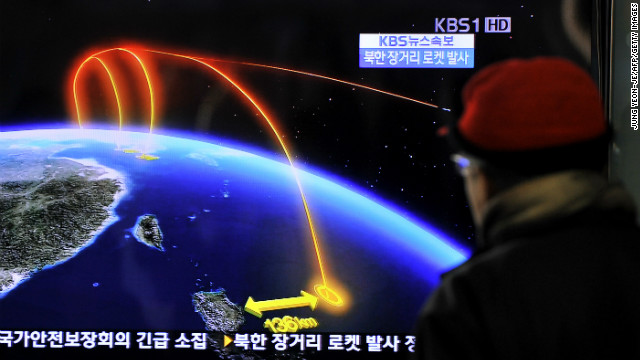
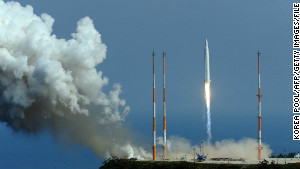 What is a successful rocket launch?
What is a successful rocket launch? 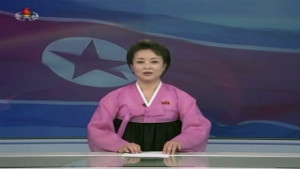 North Korea announces rocket launch
North Korea announces rocket launch 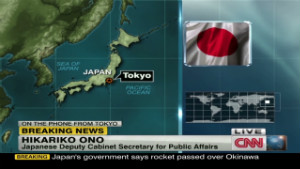 Japan: Missile launch is intolerable
Japan: Missile launch is intolerable 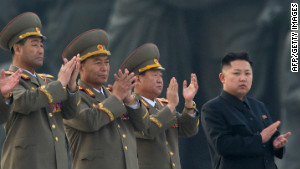 S. Korea eyes future threats from North
S. Korea eyes future threats from North 










 Thursday, December 13, 2012 - 5:30 PM
Thursday, December 13, 2012 - 5:30 PM 
Bookmarks